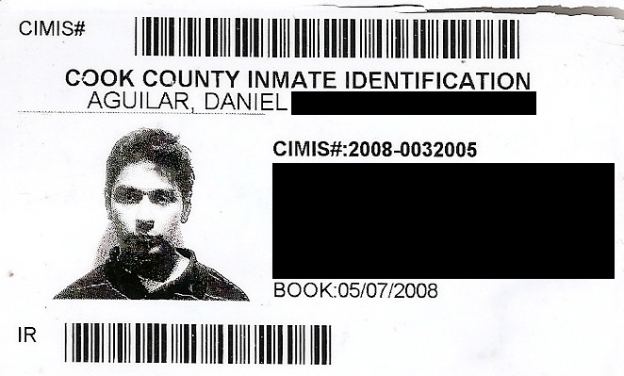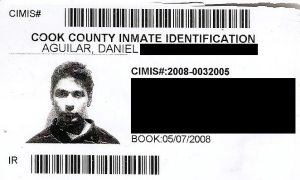1 “Declaration of Independence” (U.S., 1776).
2 For much of America’s post-Civil War history black people suffered de jure, or legal discrimination such as lacking: the express right to “vote, even in most Northern states,” equal protection from violence under the law, and equal access to public spaces such as stores, churches, hospitals, and well-funded schools. See: Francis L. Broderick, “The Gnawing Dilemma: Separatism and Integration, 1865-1925,” in Key Issues in the Afro-American Experience, ed. Nathan Irvin Huggins, Martin Kilson, and Daniel M. Fox (New York: Harcourt Brace Jovanovich, 1971), 93. See: James H. Cone, A Black Theology of Liberation, 2nd ed. (Maryknoll, N.Y.: Orbis Books, 1986), 25.
3 W. E. B. Du Bois, The Souls of Black Folk (New York: New American Library, 1969), 45.
4 James H. Cone, Martin & Malcolm & America : A Dream or a Nightmare (Maryknoll, NY: Orbis Books, 1991), 3.
5 Ibid., 3–4.
6 “…either by returning to Africa or by going to some other place where they can create sociopolitical structures that are derived from their own history and culture.” See: Ibid., 4.
7 According to King, “social gospel” theologian, Walter Rauschenbusch “left an indelible imprint on [his] thinking by giving [him] a theological basis for…social concern.” See: Martin Luther King, The Autobiography of Martin Luther King, Jr., ed. Clayborne Carson (New York: Intellectual Properties Management in association with Warner Books, 1998), 18.
8 Cornel West, Prophetic Fragments (Grand Rapids, Mich.: Eerdmans, 1988), 4.
9 Cone, Martin & Malcolm & America : A Dream or a Nightmare, 125.
10 Ibid., 126.
11 Ibid.
12 West, Prophetic Fragments, 5.
13 King recalled that, as he knelt in prayer, he heard a voice say, “stand up for justice,” “stand up for truth,” which for King was expressed in love, and to “fight on,” because of the hope that God “promised to never leave [him] alone.” See: Cone, Martin & Malcolm & America : A Dream or a Nightmare, 126.
14 West, Prophetic Fragments, 10.
15 The centrality of “Jesus’ suffering and death on the cross,” is what “separated him from liberal theology and placed him solidly in the heart of the black religious tradition.” See: Cone, Martin & Malcolm & America : A Dream or a Nightmare, 128.
16 Kenneth Bancroft Clark, ed., “Malcolm X Talks with Kenneth B. Clark,” in The Negro Protest: James Baldwin, Malcolm X, Martin Luther King Talk with Kenneth B. Clark (Boston: Beacon Press, 1963), 26.
17 Such as nonviolent: boycotts, sit-ins, protests, and freedom rides, etc. See: Kenneth Bancroft Clark, ed., “Martin Luther King Talks with Kenneth B. Clark,” in The Negro Protest: James Baldwin, Malcolm X, Martin Luther King Talk with Kenneth B. Clark (Boston: Beacon Press, 1963), 39–40.
18 West, Prophetic Fragments, 11.
19 “King declared about Chicago, “[I had] never seen anything so hostile and so hateful as I’ve seen here today.” See: David J. Garrow, Bearing the Cross : Martin Luther King, Jr., and the Southern Christian Leadership Conference, 1st Perennial Classics (New York: Perennial Classics, 2004), 500.
20 King, The Autobiography of Martin Luther King, Jr., 291.
21 Garrow, Bearing the Cross : Martin Luther King, Jr., and the Southern Christian Leadership Conference, 546, 568–569. See: Martin Luther King, A Testament of Hope : The Essential Writings of Martin Luther King, Jr., ed. James Melvin Washington (San Francisco: Harper & Row, 1986), 233.
22 “By the 1960s, millions of blacks had been systematically segregated through deceptive practices such as redlining and restrictive covenants.” See: Douglas S. Massey and Nancy A. Denton, American Apartheid : Segregation and the Making of the Underclass (Cambridge, Mass: Harvard University Press, 1993).
23 Manning Marable, Malcolm X : A Life of Reinvention (New York: Viking, 2011), 7.
24 Even after breaking with the NOI, Malcolm confessed, “I still credit Mr. Muhammad for what I know and what I am.” See: Malcolm X, “The Ballot or the Bullet” (Speech, Detroit, MI, April 12, 1964), americanradioworks.publicradio.org/features/blackspeech/mx.html.
25 (e.g., the bombing of his childhood home, racist killing of his father, being told by a white teacher that his childhood dream to become a lawyer was “no realistic goal for a nigger,” and a racist white judge’s excessive punishment for being romantically involved with white women) See: Malcolm X, The Autobiography of Malcolm X, ed. Alex Haley (New York: Ballantine Books, 1999), 79–80, 118, 242.
26 Marable, Malcolm X : A Life of Reinvention, 91.
27 Ibid., 77.
28 Ibid., 133.
29 “The total number of blacks in congress was five. The number of black elected mayors was zero.” See: Manning Marable, Malcolm X’s Political Thought and Legacy, The Malcolm X Project (Columbia University), accessed May 3, 2014, columbia.edu/cu/ccbh/mxp/videolectures.html.
30 Interview with Malcolm X, vol. 22, Sociology 1-A (Berkeley: University of California, 1963), archive.org/details/cabemrc_00001.
31 Marable, Malcolm X : A Life of Reinvention, 133.
32 “Segregation,” said Malcolm, “is that which is forced upon inferiors by superiors,” the modern ghetto. See: Malcolm X, “Malcolm Explains the Difference between Separation and Segregation” (Interview, Michigan State University, East Lansing, MI, January 23, 1963), ccnmtl.columbia.edu/projects/mmt/mxp/speeches/mxt14.html.
33 X, “The Ballot or the Bullet.”
34 Cone, Martin & Malcolm & America : A Dream or a Nightmare, 290.
35 In Malcolm’s eulogy, Ossie Davis reflected, “Malcolm had stopped being a ‘Negro’ years ago…and he wanted—so desperately—that all his people, would become Afro-Americans too.” Ossie Davis, “Eulogy of Malcolm X” (Faith Temple Church of God, New York, NY, February 27, 1965), malcolmx.com/about/eulogy.html.
36 Cone, Martin & Malcolm & America : A Dream or a Nightmare, 292.
37 Cornel West, Race Matters (Boston: Beacon Press, 1993), 23.
38 In 2009, 36.3% of the total black population lived in high-poverty places, while 49.2% of black or African Americans below the poverty line were concentrated in neighborhoods with poverty rates greater than 20%. For all Hispanics, 23.9% lived in high-poverty places, while 33.3% of below-poverty Hispanics lived in these communities as well. Only 11.1% of non-Hispanic whites lived in “high-poverty” neighborhoods. See: Daniel T. Lichter, Domenico Parisi, and Michael C. Taquino, “The Geography of Exclusion: Race, Segregation, and Concentrated Poverty,” Social Problems 59, no. 3 (August 1, 2012): 364–88.
39 Only “18 percent of white students” attend high-poverty schools See: John R. Logan, Elisabeta Minca, and Sinem Adar, “The Geography of Inequality: Why Separate Means Unequal in American Public Schools,” Sociology of Education 85, no. 3 (July 1, 2012): 288.
40 Michelle Alexander, The New Jim Crow : Mass Incarceration in the Age of Colorblindness (New York; [Jackson, Tenn.]: New Press ; Distributed by Perseus Distribution, 2010).
41 Mid-90s: 23 of 80 U.S. largest cities had black homicide arrest rates that were more than 10x higher than whites. See: Gary LaFree, Eric P. Baumer, and Robert O’Brien, “Still Separate and Unequal? A City-Level Analysis of the Black-White Gap in Homicide Arrests since 1960,” American Sociological Review 75, no. 1 (February 1, 2010): 94. “Data from 2001, homicide and violent index crime rates: (Black: rates per 100,000 of 15.81and 1,311.48, respectively), (Latino: 6.39 and 505.63), (White: 2.85 and 331.52).” See: Jeffery T. Ulmer, Casey T. Harris, and Darrell Steffensmeier, “Racial and Ethnic Disparities in Structural Disadvantage and Crime: White, Black, and Hispanic Comparisons*,” Social Science Quarterly 93, no. 3 (September 1, 2012): 810.




